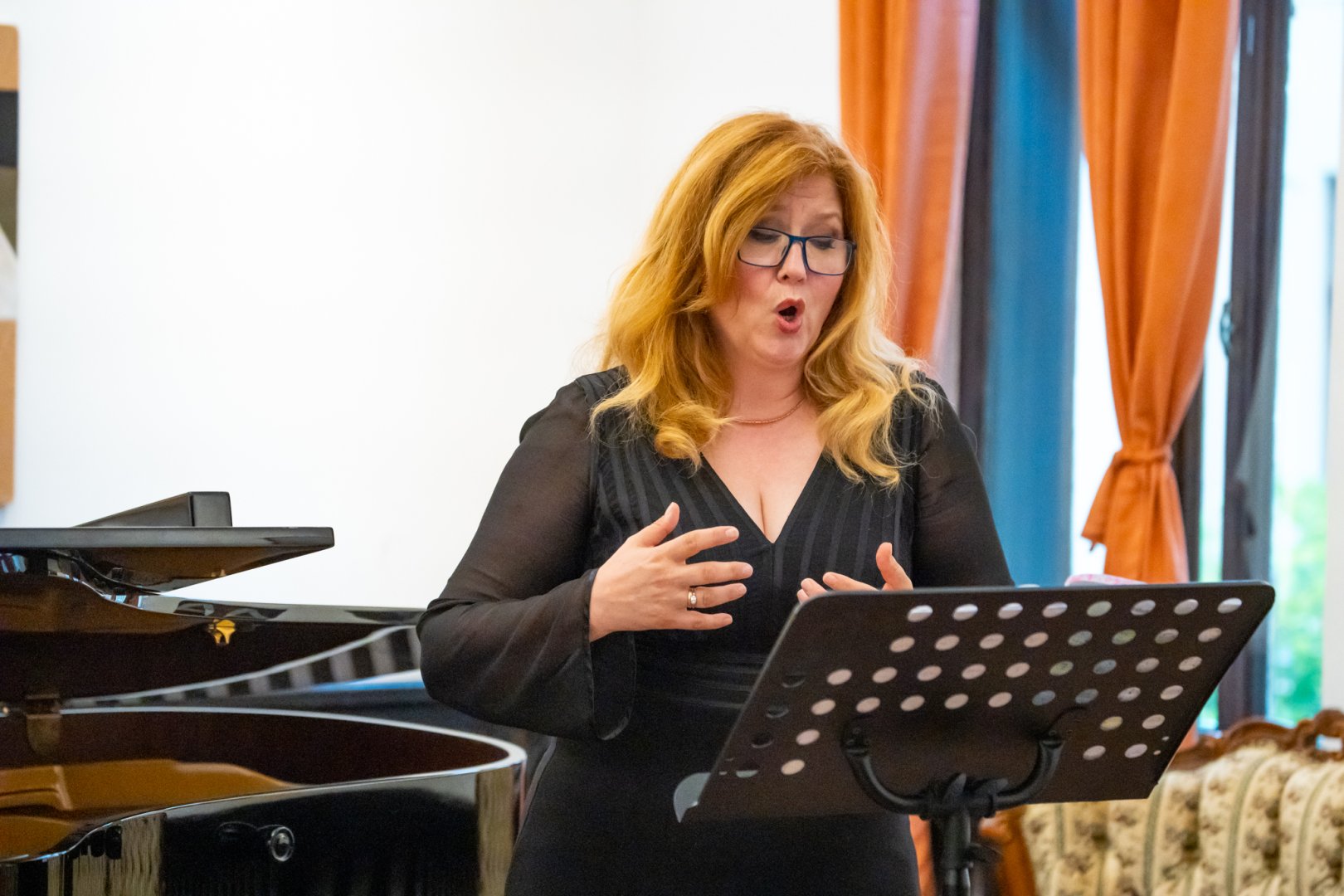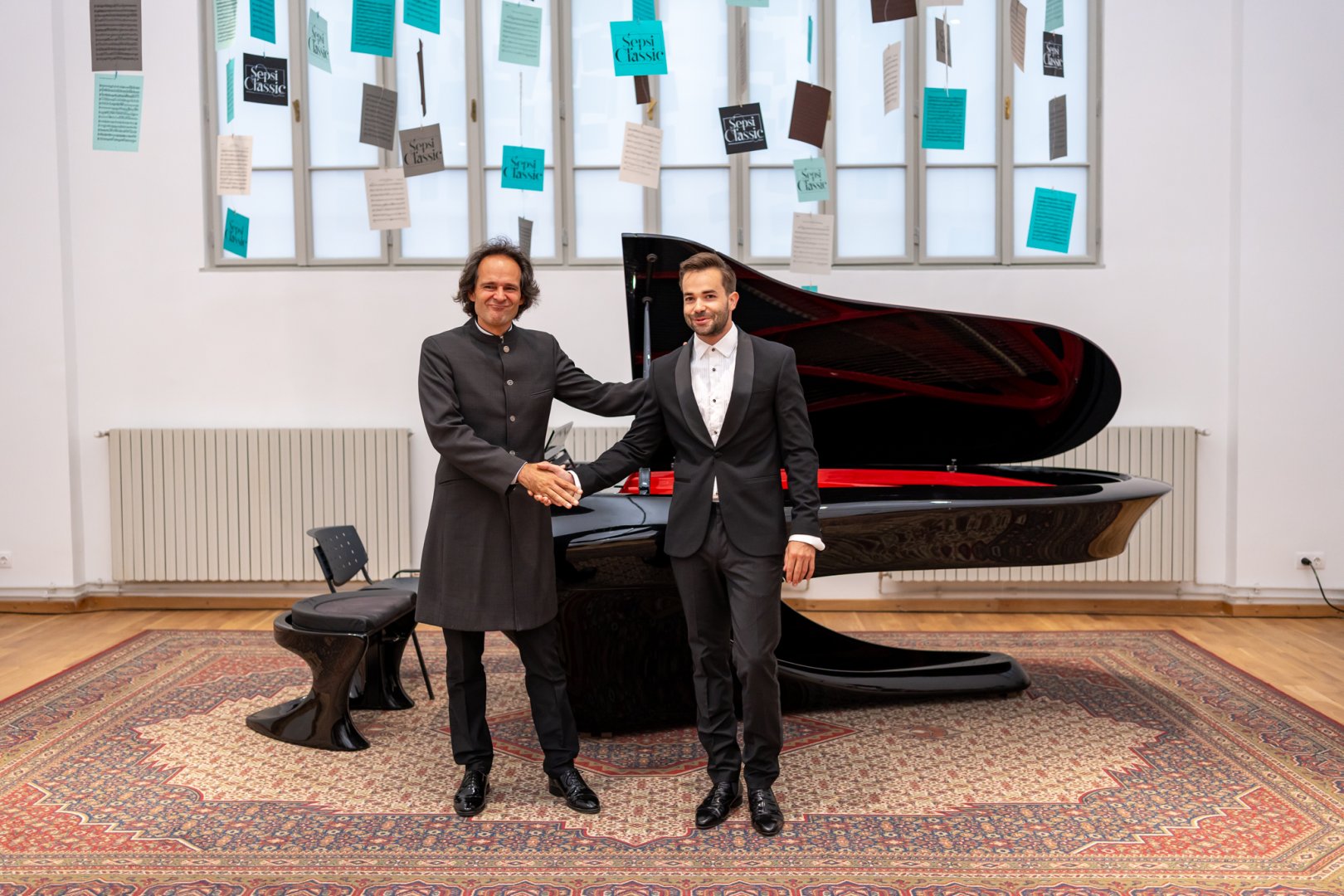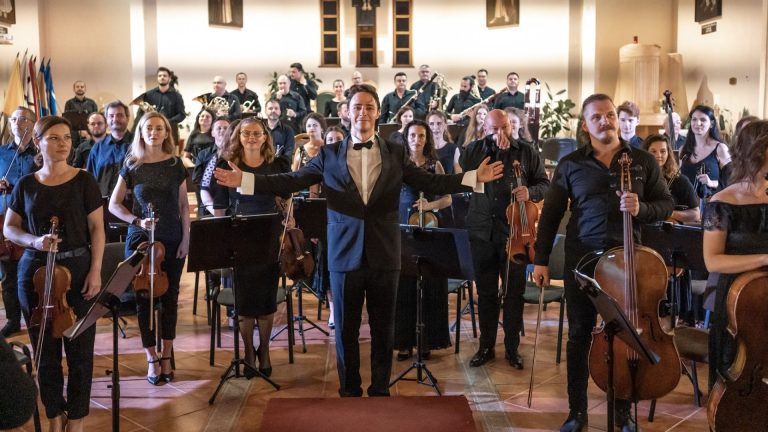For four days, classical music took centre stage at the first SepsiClassic Classical Music Festival, which attracted more than 1,000 visitors between 6 and 9 July in Sfântu Gheorghe. The event included music history lectures, open-air concerts in Elisabeth Park, symphony, chamber and solo concerts.
Ovidiu-Florian Andriș, manager of the Banatul Philharmonic of Timisoara, said: „It is well known that Timișoara is the European Capital of Culture, and with this event, Sfântu Gheorghe is now on the map of classical music in Europe.”
„I hope that this work and this event will last for many years, because this is a festival that could be held in a big city. Let the people of Sfântu Gheorghe take care of it and be proud of it”, said Dávid Zsoldos, President of the Hungarian Music Council, and founder and CEO of Papageno at the closing concert of the festival.
The number of visitors to the festival, the long minutes of frenetic applause from the audience at the end of the concerts, the increasing number of visitors of all ages – all indicate that there is a demand for classical music and classical music festivals in Sfântu Gheorghe.
On 6 July, the world-famous Kaganovskiy Virtuosi’s performance of Salut d’amour, and a fantastic performance by local talent Ábel Furus in the packed Unitarian Church were a fitting opening to the festival. Afterwards, on the evening of 7 July, Kossuth and Liszt Prize-winning opera singer Klára Kolonits and Antónia Keresztes, as well as the sensual piano performance of Bálint Zsoldos, were real highlights of the events at the Árkosi Cultural Centre. In a carefully curated repertoire entitled The Flowers of Summer, the artists played musical compositions by the greatest composers of the Romantic era: Tchaikovsky, Brahms, and Grieg.

The evening was closed by internationally renowned organist and conductor Dániel Somogyi-Tóth, who played the organ of Christ the King Church, joined by Sfântu Gheorghe-based clarinetist János Balázs Kádár. The audience could hear pieces by Purcell, Vivaldi and Bach.
The Bogányi piano was a real speciality of the festival. Completed in seven years, the streamlined „Wonder Piano” is based on a new concept and technology, with a completely unique shape and construction. On Saturday and Sunday, pianists performed on the Hungarian-developed, very clear and powerful sounding piano.
First, pianist Róza Radnóti played the special instrument in the Bartók Hall of the renovated Szekler National Museum. On the occasion of the centenary of the birth of György Ligeti, Radnóti gave a piano recital entitled Ligeti 100 – Miniatures from the works of Bartók and Ligeti. The audience could also hear local talents play: first Dorottya Dénes played her violoncello, then Regina Sebestyén-Lázár performed her own compositions, also with Dorottya Dénes.
Gergely Bogányi and Ábel Veress played to a full house, joined by Lucia Kiss on cello, and Éva Kóbor on violin. Their performance was one of the highlights of the festival.

On 9 July, one of the most exciting figures in the music world of Sfântu Gheorghe, pianist Botond Szőcs not only moved the keys of the Bogányi piano, but also the hearts of the audience with his energetic yet sensitive playing. He did this together with his fellow musicians: With Zsombor Filip on guitar, Attila Csoma on tuba, and Mădălina Bourceanu on vocals at the Bartók Hall of the Szekler National Museum.
The audience rewarded the symphonic concert of the Banatul Philharmonic Orchestra of Timișoara with long minutes of frenetic applause – a fitting finale to the first classical music festival in Sfântu Gheorghe. The Bartók and Beethoven compositions performed in the Christ the King Church perfectly framed the events of the four days with the venue’s stunning acoustics.
On the mornings of 6 and 7 July, in his lectures entitled Mirror Translation, music historian Dávid Zsoldos gave a detailed insight into the works and private lives of Bach and Händel, as well as Liszt and Paderewski. He spoke of outstanding artists who, along the way, reached the pinnacle of society of their time, as artists of the time could reach.
On 7 July, the Lilium Quartet and on 9 July, the Clarinetto Chamber Orchestra gave an open-air concert in Elisabeth Park, attracting a large number of visitors to the beautiful surroundings and the atmospheric venue.
The organisers of the first SepsiClassic were the Mayor’s Office of Sfântu Gheorghe, the Ádám Kónya Cultural Centre, and the Mikes Kelemen Association of Trei Scaune.











